Successor to last year’s Mi 10T Pro, the Xiaomi 11T Pro features Qualcomm’s high-end chipset Snapdragon 888, a 6.67-inch AMOLED display, and up to 12GB RAM and 256GB of built-in storage. For its latest premium smartphone, Xiaomi renewed its successful partnership with Harman, promising an “unforgettable audio experience”, with dedicated dual speakers, and “quality 360° surround sound”. The 11T Pro also supports Dolby Atmos, and boasts a triple microphone array adding audio zoom to the phone’s acoustic abilities.
We put the Xiaomi 11T Pro through our rigorous DXOMARK Audio test suite to measure its performance both at playing audio back through its built-in speakers and at recording sound using its built-in microphones. In this review, we’ll break down how it fared in a variety of tests and in several common use cases.
Key audio specifications include:
-
Two speakers (bottom right and top right)
- USB Type-C input for headphones (no 3.5mm jack)
- Audio zoom
- Dolby Atmos support
- Hi-Res certification
About DXOMARK Audio tests: For scoring and analysis in our smartphone audio reviews, DXOMARK engineers perform a variety of objective tests and undertake more than 20 hours of perceptual evaluation under controlled lab conditions. This article highlights the most important results of our testing. Note that we evaluate both Playback and Recording using only the device’s built-in hardware and default apps.
(For more details about our Playback protocol, click here; for more details about our Recording protocol, click here.)
Test summary
Scoring
Sub-scores and attributes included in the calculations of the global score.
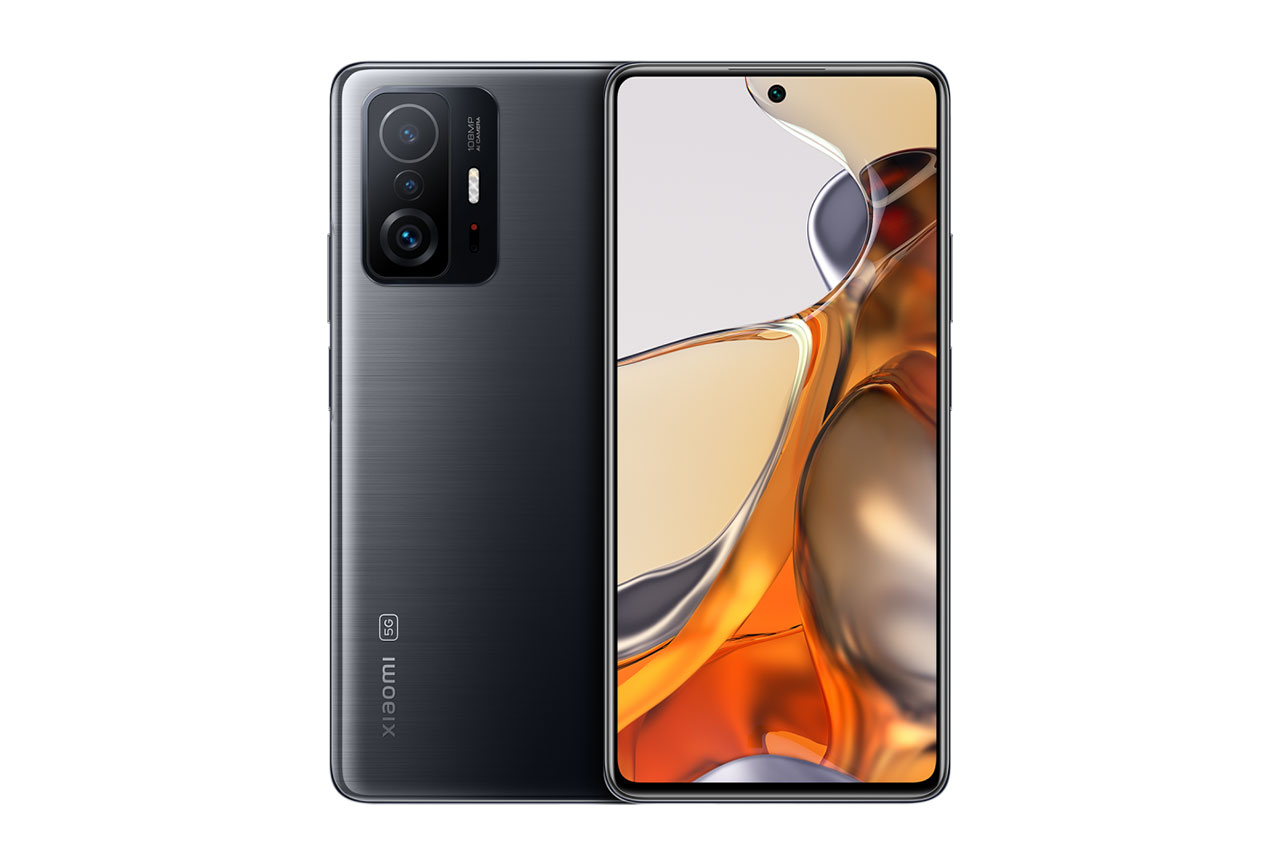
Xiaomi 11T Pro


 76th
76th 18th
18thPlayback
Cons
- Inconsistent midrange, with occasional resonances
- Thin tonal balance, lacking bass and brightness
- Transients may induce clipping at louder volumes
Recording
Cons
- Slight lack of low midrange in all use cases
- Recording loudness with Camera app is quite low
- Some distortion present in recordings made at high SPL
The Xiaomi 11T Pro’s overall score of 71 places it in the lead quarter of all the phones we have tested to date, alongside the Apple iPhone 11 Pro Max but 5 points down from one of its predecessors, the Xiaomi Mi 10 Pro.
In playback, the Xiaomi 11T Pro is highly suited for gaming, thanks to very good spatial attributes (wideness of the sound field, localizability of the sources within that field, left-right balance, and distance rendering), sharp and rather impactful dynamics, and excellent volume results overall, both at minimum and at maximum volumes. Except for synthetic signals, the speakers turn in mostly clean, artifacts-free audio, however, note that they are quite easy to occlude when handheld in landscape mode. Further, the 11T Pro’s prominent yet inconsistent midrange, its lack of bass and brightness and its occasional clipping make it less fitted for music or movie playback.
As a recording device, the Xiaomi 11T Pro offers a delightfully consistent performance across all use cases. Regardless of the scenario, recordings benefit from a harmonious tonal balance (good treble presence and faithful midrange in particular), realistic envelope capture, good signal-to-noise ratio, as well as relatively absent sonic artifacts overall. Videos recorded with the rear cameras, called life videos in our protocol, exhibit great wideness, as with most Xiaomi models. That said, while all recording configurations share most of the phone’s strengths, the same goes for weaknesses: a slight lack of low midrange is observable across all use cases, and occasional distortion is perceivable at high SPL. Further, note that loudness in videos recorded with the Camera app is a bit subpar.
Sub-scores explained
The DXOMARK Audio overall score of 71 for the Xiaomi 11T Pro is derived from its Playback and Recording scores and their respective sub-scores. In this section, we’ll take a closer look at these audio quality sub-scores and explain what they mean for the user.
Playback
Timbre tests measure how well a phone reproduces sound across the audible tonal range and takes into account bass, midrange, treble, tonal balance, and volume dependency.
The Xiaomi 11T Pro earns an average score for timbre due to a slightly underwhelming performance. Midrange is emphasized by a lack of low-end, and can sometimes sound canny or nasally. Further, it is rather weak and inconsistent, lacking low-midrange and exhibiting occasional resonances at maximum volume. Treble is decent, albeit lacking high-end extension and brightness, even at loud volumes.
That all said, timbre is globally satisfying at maximum volume. While bass is fairly absent at nominal volume, resulting in a thin sound, it does get better as the volume increases, reaching a satisfying presence at maximum volume.

Dynamics
Xiaomi 11T Pro
74
81
DXOMARK’s dynamics tests measure how well a device reproduces the energy level of a sound source, and how precisely it reproduces bass frequencies.
Dynamics certainly are one of the 11T Pro’s strong suits in playback, with a sub-score only seven points down from the title-holder in this category. Attack is very snappy, with such sharp transients that they can generate clipping at maximum volume! Additionally, despite the weak low-end energy, the phone manages to produce satisfactory bass precision and punch across all volumes.

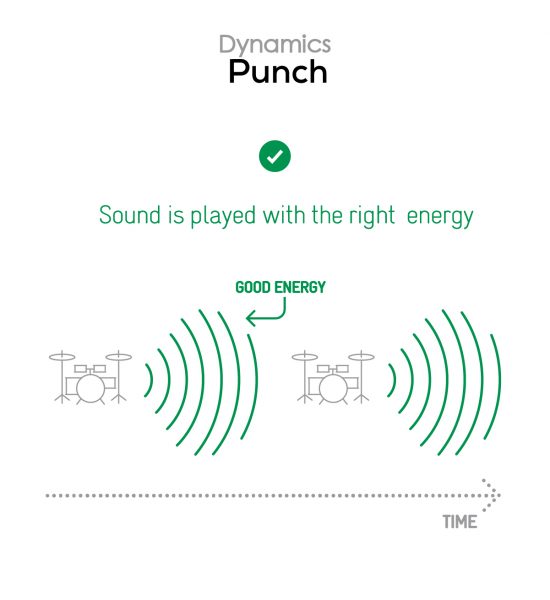

Spatial
Xiaomi 11T Pro
68
88
The sub-attributes for perceptual spatial tests include localizability, balance, distance, and wideness.
Spatial attributes are all on target: the sound field spreads out pretty widely — albeit not as wide as the Mi 10 Pro or 10S —, and localizability of the various sources within that sound field is more than correct, except in our classical music evaluation where it was somewhat blurrier.
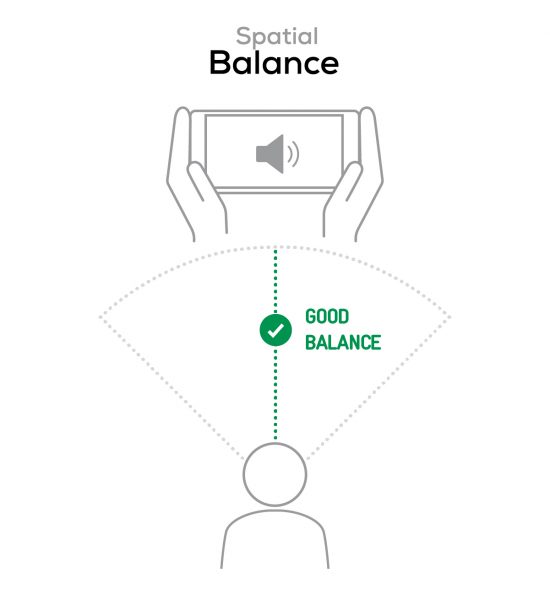
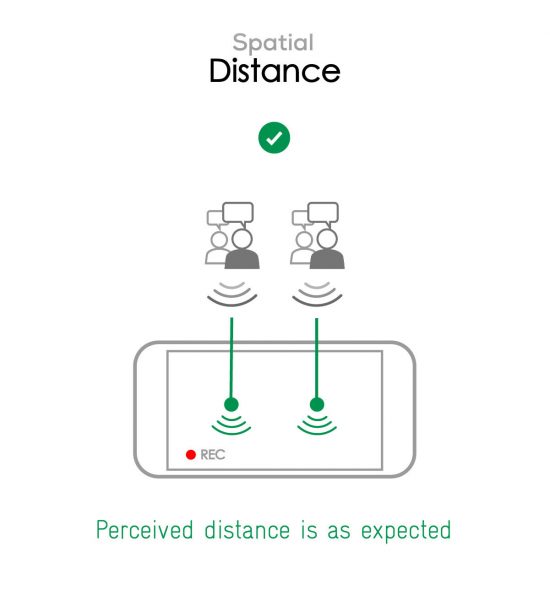
The left and right channels are correctly balanced, which results in a well centered scene overall, and distance rendering is very realistic. However, in the Movie app, note that the stereo field doesn’t rotate when the phone is used in inverted landscape mode, which means the left and right channels are then swapped.

Volume
Xiaomi 11T Pro
67
91
Volume tests measure both the overall loudness a device is able to reproduce and how smoothly volume increases and decreases based on user input.
The 11T Pro provides a very satisfying loudness at maximum volume, a fairly natural distribution of volume steps overall (except for the first two), and ensures excellent intelligibility at minimum volume. Here are a few sound pressure levels (SPL) measured when playing our sample recordings of hip-hop and classical music at maximum volume:
| Hip-Hop | Classical | |
| Xiaomi 11T Pro | 73.4 dBA | 70.1 dBA |
| OnePlus 9 | 75.9 dBA | 72.4 dBA |
| Samsung Galaxy A52 5G | 72 dBA | 68.3 dBA |

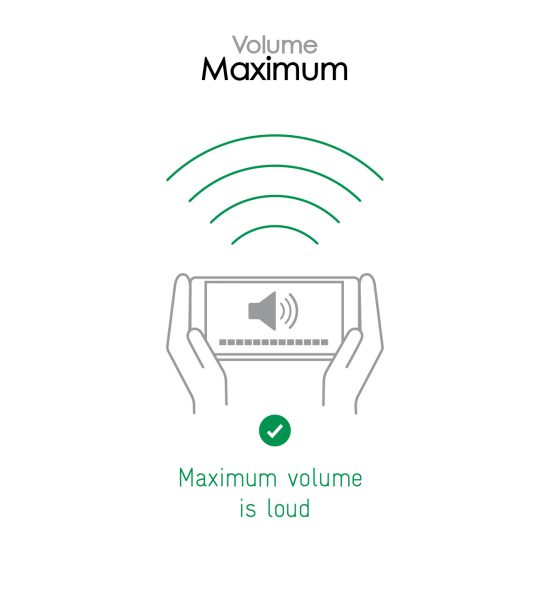

Artifacts
Xiaomi 11T Pro
83
113
Artifacts tests measure how much source audio is distorted when played back through a device’s speakers. Distortion can occur both because of sound processing in the device and because of the quality of the speakers.
The 11T Pro’s below-average sub-score in this category is explained by its exhibiting quite a lot of sonic artifacts with synthetic signals (such as pure sine waves), including aliasing and distortion. Otherwise, with common audio, the phone ensures a fairly clean, artifacts-free playback. That said, note that the speakers are pretty sensitive to hand occlusions.
Recording

Timbre
Xiaomi 11T Pro
83
91
In recording timbre, the Xiaomi 11T Pro receives a very good sub-score, only five points down from the best-scoring device in this category.
Recordings sound natural, with nice treble presence and realistic midrange. A slight lack of low midrange is noticeable though, with voices sounding a bit nasally and lacking fullness. Tonal balance is also correct in the Recorder app, however, it is somewhat hindered by a slightly limited high-end extension, and recessed low midrange.
Although they remain harmonious, recordings made in loud environments are a bit too focused on midrange, lacking both low- and high-end. In terms of use cases, videos, both selfie and life, fare best.

Dynamics
Xiaomi 11T Pro
72
81
In this category too, the phone delivers a very satisfying performance. Recordings exhibit a good signal-to-noise ratio (SNR) and a realistic envelope across all use cases, with precise and natural plosives, except in high-SPL scenarios, where slight compression is noticeable and plosives are occasionally crushed by distorsion. That said, dynamics remain overall very faithful, even in loud environments.

Spatial
Xiaomi 11T Pro
72
78
Spatial attributes are also up to par. As with most Xiaomi devices, life videos produce a great sense of wideness. However, in selfie videos, the stereo scene wideness is much more limited, resulting in a fairly narrow stereo scene.
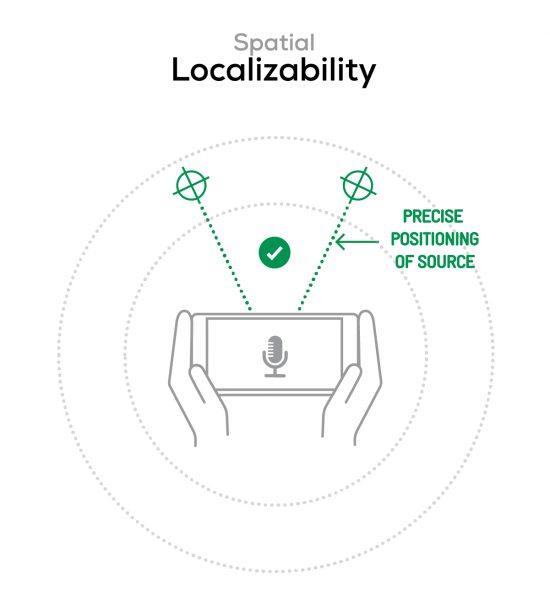

Regardless of the use case, localizability is precise, and thanks to the natural midrange, distance capture is realistic.

Volume
Xiaomi 11T Pro
46
99
Nominal loudness is good in the Recorder app, and only correct (albeit lower than with other Xiaomi phones) in the Camera app. Here are our test results, measured in LUFS (Loudness Unit Full Scale); as a reference, we expect loudness levels to be above -24 LUFS for recorded content:
| Meeting | Life Video | Selfie Video | Memo | |
| Xiaomi 11T Pro | -28.1 LUFS | -26.3 LUFS | -23.9 LUFS | -22.4 LUFS |
| OnePlus 9 | -29.5 LUFS | -20.6 LUFS | -19.4 LUFS | -19.4 LUFS |
| Samsung Galaxy A52 5G | -26.1 LUFS | -22.3 LUFS | -20.8 LUFS | -21.5 LUFS |

Artifacts
Xiaomi 11T Pro
82
97
Audio recorded with the 11T Pro exhibits very few sonic artifacts overall. A subtle distortion is noticeable on loud noises (like shouting voices), but nothing too problematic. As for recordings made in loud environments, distortion can appear on vocal sibilances, but no temporal artifact is perceivable.
You can check for artifacts yourself in this sample domestic recording:
However, those good results have to be put in perspective: the Camera app’s recording level being sensibly lower compared to previous Xiaomi iterations, it is only logical that sonic artifacts should be less present.
Despite the lack of bass, background recordings sound realistic and fairly clean. The 11T Pro thus reaches a sub-score of 55, only three points down from the iPhone XS Max, best-scoring phone in this category.
Conclusion
Whether for recording a memo, making a selfie video or filming a concert, the 11T Pro is never struggling: as a recording device, Xiaomi’s latest premium smartphone is, first and foremost, a very reliable and consistent performer across all use cases. Sure, there are smartphones that will truly excel at each of those scenarios, but few devices are able to ensure such a good job across the board. As for playback, the timbre’s inconsistencies prevent it from being an ideal candidate for listening to music or watching movies, but thanks to strong dynamics, immersive spatial attributes and very good volume results, the Xiaomi 11T Pro is very well suited for gaming.


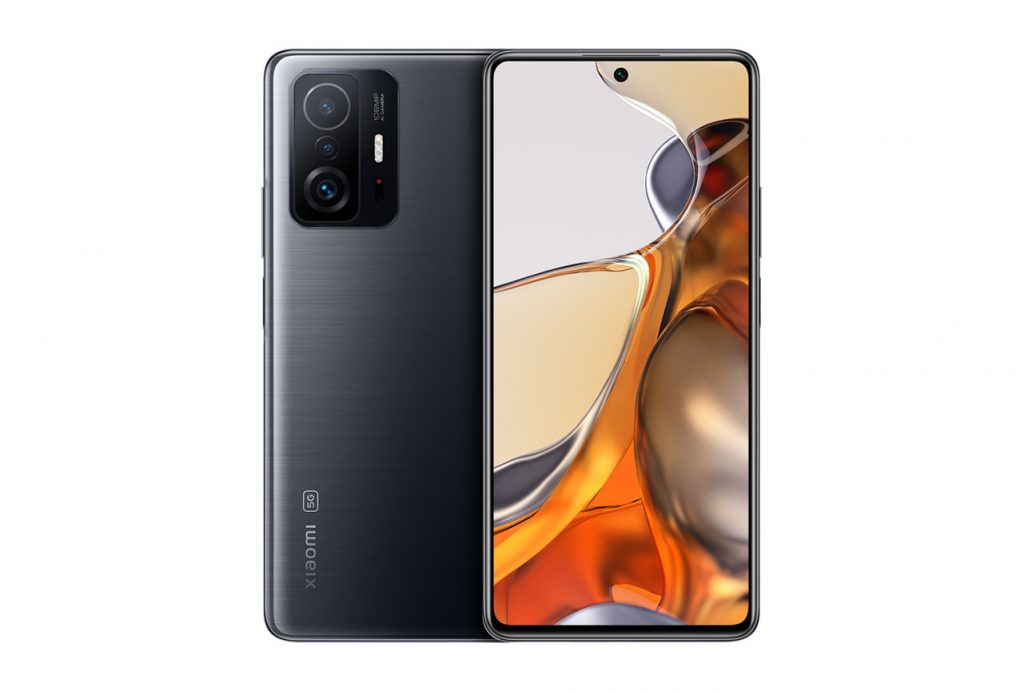

DXOMARK encourages its readers to share comments on the articles. To read or post comments, Disqus cookies are required. Change your Cookies Preferences and read more about our Comment Policy.